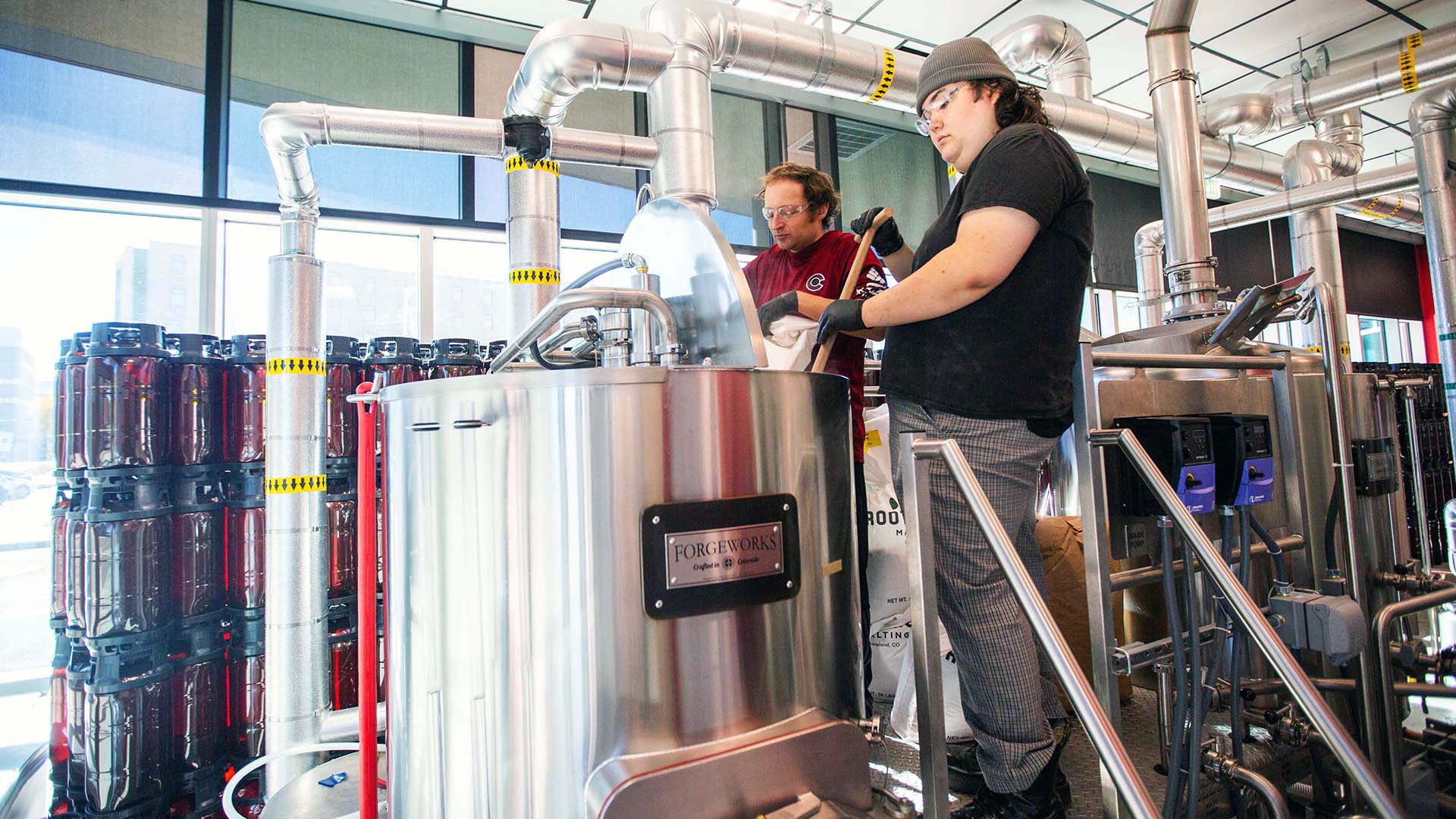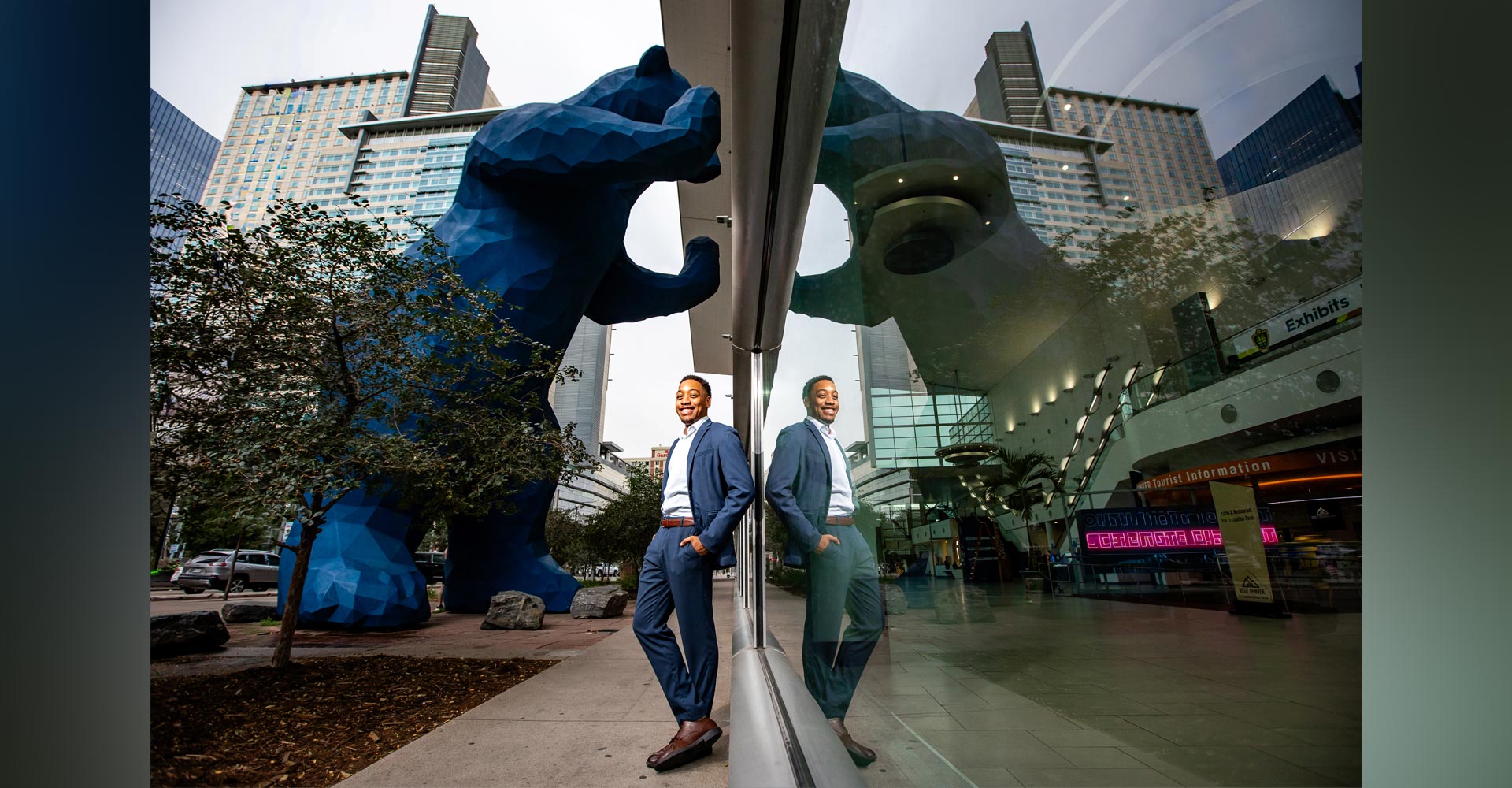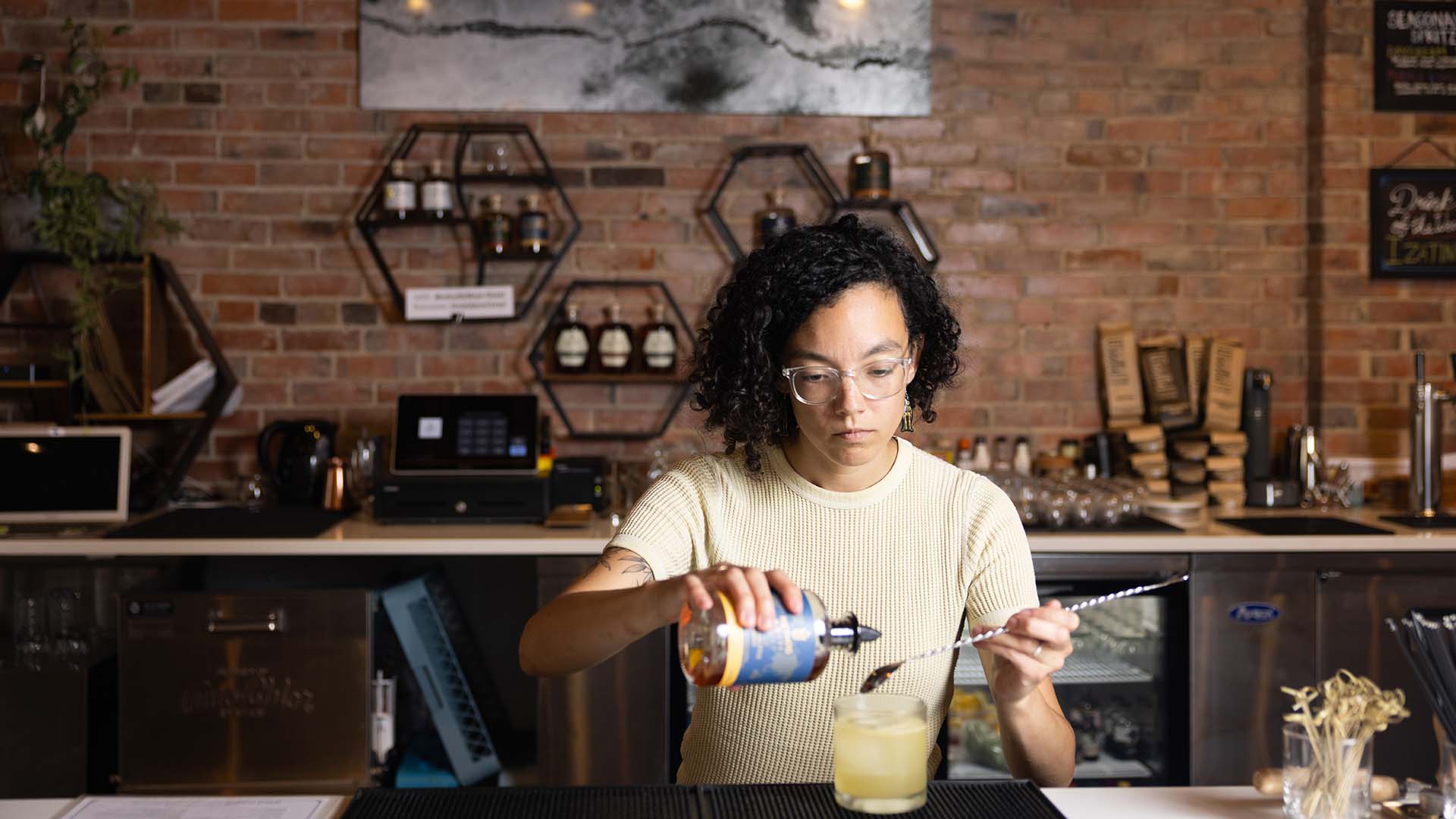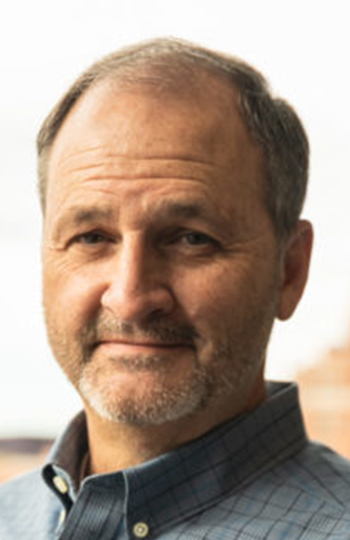Delivering equity and meals on three wheels
Alumnus Ricardo Rocha aims to solve food insecurity with grocery delivery to low-income neighborhoods.
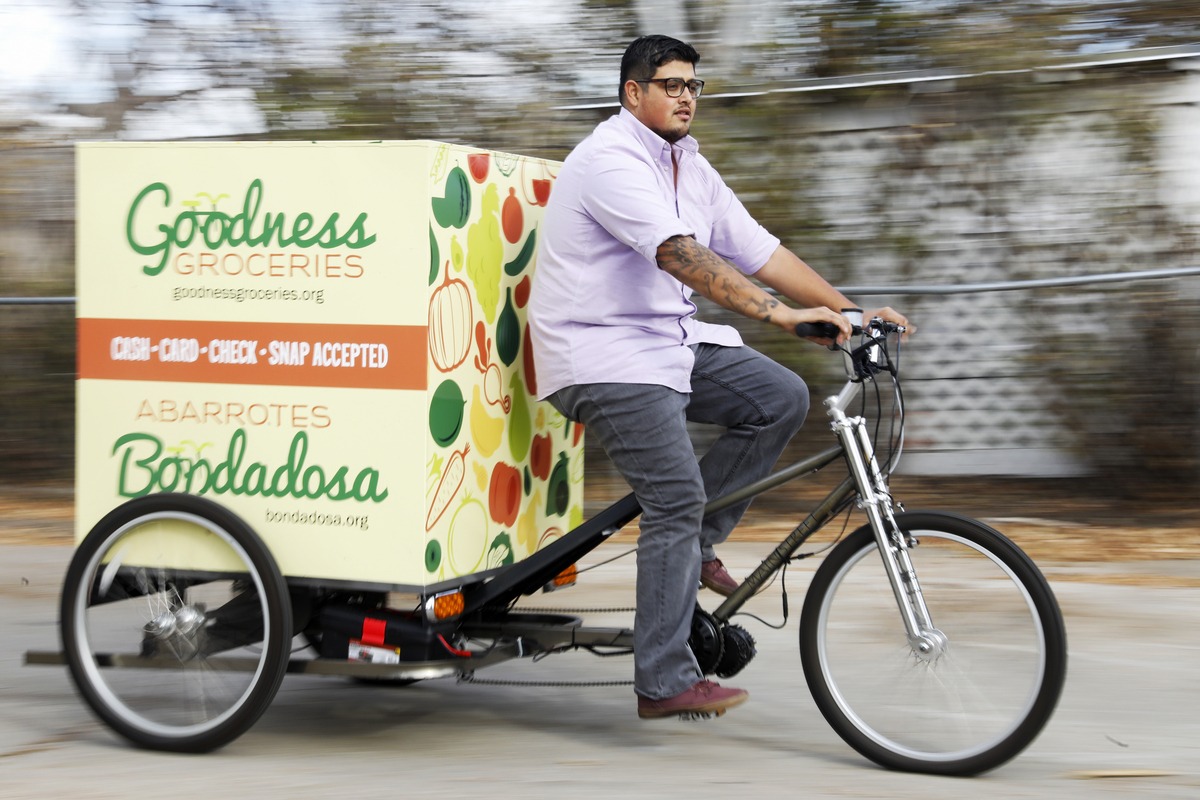
Imagine what you could do with a fleet of electric-powered tricycles. Ricardo Rocha, the 26-year-old CEO of Abarrotes Bondadosa, Spanish for “Goodness Groceries,” does more than imagine.
Rocha runs a startup social enterprise that began delivering groceries and goods to low-income neighborhoods in northeast Denver last week, with a mission of eliminating food insecurity and increasing health equity in the metro area. It’s a new mission for a man who has been on a mission to better himself and his community for some time now.
Finding a seat at the table
Rocha’s road from Mexico to CEO was paved with injustice and deliverance. Equal parts disappointment and opportunity. At 26, having just graduated from MSU Denver in spring 2017, he’s already feeling the wear on his treads as an immigrant and a man of color who came from a low-income family and an abusive household.
Well before he was tackling food deserts (low-income urban neighborhoods more than one mile from a supermarket) in Denver, Rocha was growing up in an actual desert in New Mexico, and before that a mountainside town in Mexico. Before his company took on the last leg of farm-to-table, the son of a migrant worker was working as a consultant and interpreter. Just before Rocha was a Roadrunner with as many extracurriculars as actual courses, he was an undocumented high school graduate with low grades and poor standardized test scores who couldn’t afford a cap and gown for graduation.
Rocha learned the power of community when an administrator from his high school connected him with a program to help low-income students purchase their graduation gear. That program ended up leading him to the College Assistance Migrant Program at MSU Denver, a one-year scholarship and support program that provided his only path financially and academically to a college future.

“MSU Denver was the only one that would let me in. Everyone thinks I’m kidding when I say that, but I’m not. It’s humbling in so many ways,” Rocha said. “MSU Denver gave me the opportunity to start over. I felt like I could walk around campus here and see someone like me. I felt at home. At the other places, I didn’t.”
The Commerce City native found community and purpose on campus, eventually mentoring his peers in CAMP and Brother to Brother and helping establish RISE, a campus organization focused on empowering Deferred Action for Childhood Arrivals recipients, refugees and undocumented students.
Off campus he started working for Colorado Latino Leadership, Advocacy, and Research Organization, or CLLARO, for which he would lobby at the state legislature and with CLLARO’s national affiliate, the National Council of La Raza. His advocacy found an even larger audience when he was appointed by Governor John Hickenlooper to Colorado’s Juvenile Justice Delinquency Prevention Council, which took him to Washington to lobby, draft programs and conduct research.
“I focused on five things: economic development, workforce development, health and health care, education and immigration. I became well-versed in the implications as to why things happen the way they do,” Rocha said.

Health care and healing
It was through his advocacy that Rocha started really understanding the social determinants of health – the environments in which people live that affect a wide range of quality-of-life risks and outcomes. He’d been drawn to health care early in his college career, when he was inspired by the story of an immigrant doctor from Mexico, and pursued a biology degree on a pre-medical path.
“At the age of 19, I started a cleaning business, and I was a janitor for a long time. We were cleaning Walgreens and noticed there are clinics in the back, and I would tell myself, ‘I’m going to be there one day,’” Rocha said.
But he soured on the health care industry after he interned at different clinics and saw the toll that discrimination and rising costs took on underprivileged patients. He worked at a clinic that deferred immigrants who were more likely to pay out of pocket over time, favoring patients with government-backed Medicaid reimbursements, and he gave up a medical career after an elderly patient he advised about an inexpensive consult got roped into unnecessary screenings and had to ask her community for help paying it off.
“That was so devastating. That broke my heart. No way am I doing that, never again,” Rocha said. “When I stumbled upon the reality of the industry, that’s when I said I’m just going to finish my degree and see where I can heal and advocate for communities.”
It was working two different jobs that led Rocha to his third job of the moment with Abarrotes Bondadosa. He was working as a translator at a board meeting where nonprofit Denver Food Rescue was unsuccessfully trying to connect with Save-A-Lot grocery stores to rescue food that would otherwise go to waste. Rocha had been doing consultant work associated with Save-A-Lot and set up a meeting between the parties. Soon after Rocha unexpectedly received a job offer – running a new Denver Food Rescue spinoff with on-demand grocery delivery.
Equity in delivery
According to a 2016 report published by the City and County of Denver, nearly one in six individuals in Denver are food insecure and 49 percent of low- to moderate-income Denver neighborhoods lack convenient access to grocery stores.
Abarrotes Bondadosa is one of 10 food-related ventures partnering with the Denver Office of Economic Development and nonprofit Uncharted in the Food Access Project, an entrepreneurial collective seeking solutions to Denver’s food insecurity issues.
“Entrepreneurship is the avenue with which we can create change, and food might be the way to address hypertension, diabetes, chronic inflammation and all sorts of chronic diseases that at the end of the day aren’t treatable by going to a consult – it’s a lifestyle change,” Rocha said. “Sadly, that lifestyle change is often out of reach for some people. That brought me to food access and sustainability.”
The startup launched Nov. 15 with two employees on motorized tricycles delivering groceries to four low-income Denver zip codes, with plans to hire an additional dozen employees and expand to Montbello and Sheridan in 2018.
Denver Food Rescue executive director Turner Wyatt said he chose Rocha to lead Abarrotes Bondadosa because “he is from the communities we serve, cares a lot about food access and is well-connected.”
Customers can order online or over the phone in English or Spanish and receive groceries same day, paying with cash, check, card or even through the Supplemental Nutrition Assistance Program, or SNAP. Abarrotes Bondadosa is one of only a handful of grocery delivery services in the nation to serve people of advanced age and people living with disabilities who SNAP benefits. The company partners with local retailers to purchase wholesale goods and pass the savings onto their customers, keeping the costs for fresh, healthy food affordable.
“I feel like there’s been lots of talking with regard to food security and not enough acting. The city has been trying for almost 10 years to incentivize brick-and-mortars to come into food-scarce neighborhoods. There’s an overwhelming amount of food, but there is a lack of distribution, which is one of the reasons why so much food that goes to waste,” Rocha said. “This is not a solution that I came up with, it’s a collective solution for a very complicated problem that a lot of people have put money and real work into.”


